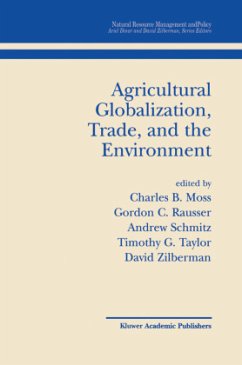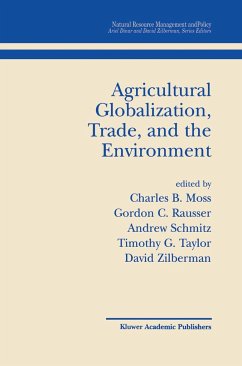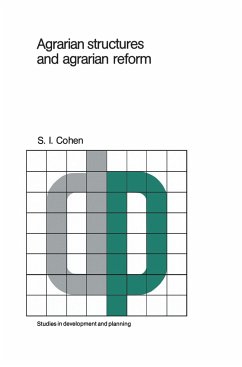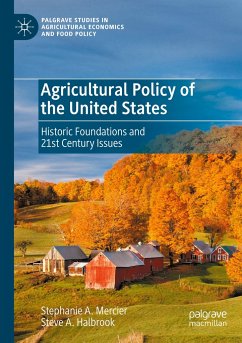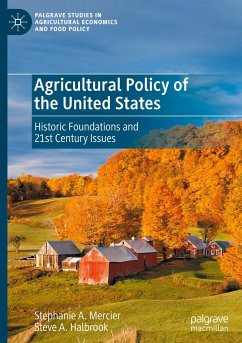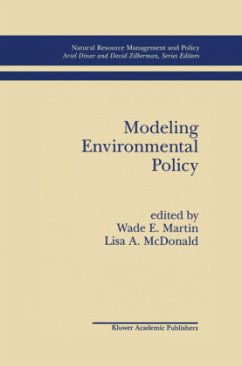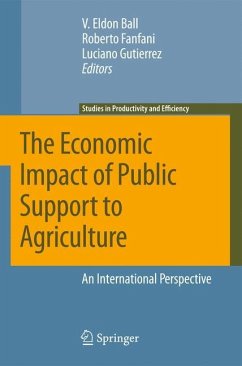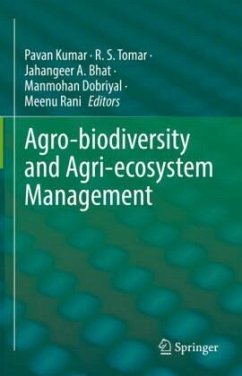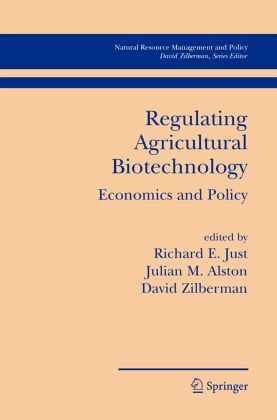
Regulating Agricultural Biotechnology
Economics and Policy
Herausgegeben: Just, Richard E.; Alston, Julian M.; Zilberman, David
Versandkostenfrei!
Versandfertig in 6-10 Tagen
199,99 €
inkl. MwSt.

PAYBACK Punkte
100 °P sammeln!
REGULATING AGRICULTURAL BIOTECHNOLOGY: ECONOMICS AND POLICY Chapter 1 REGULATING AGRICULTURAL BIOTECHNOLOGY: INTRODUCTION AND OVERVIEW Richard E. Just,_ David Zilberman/ and Julian M. Alston _ University of Maryland, _ University of California, Berkeley, University of California, Davis Abstract: This chapter introduces the topic of this book, drawing upon the content of its chapters. An overview is provided on the economics of technological regulation as applied to agricultural crop biotechnologies. Key elements of agricultural biotechnology regulation in the United States are summarized. Key ...
REGULATING AGRICULTURAL BIOTECHNOLOGY: ECONOMICS AND POLICY Chapter 1 REGULATING AGRICULTURAL BIOTECHNOLOGY: INTRODUCTION AND OVERVIEW Richard E. Just,_ David Zilberman/ and Julian M. Alston _ University of Maryland, _ University of California, Berkeley, University of California, Davis Abstract: This chapter introduces the topic of this book, drawing upon the content of its chapters. An overview is provided on the economics of technological regulation as applied to agricultural crop biotechnologies. Key elements of agricultural biotechnology regulation in the United States are summarized. Key words: agricultural biotechnologies, causes and consequences of technological regula tion, overview and synthesis 1. INTRODUCTION Agricultural biotechnologies apply modern knowledge in molecular and cell biology to produce new varieties and similar genetic materials. The use of genetically modified (GM) crop varieties has grown dramatically since they were introduced in 1995, and large portions of the land allocated to corn, soybeans, and cotton are grown with these varieties. The evidence from the United States, Canada, China, India, Brazil, and Argentina suggests that these applications of biotechnology in agriculture increase yield, reduce the use of pesticides, and save production costs.





